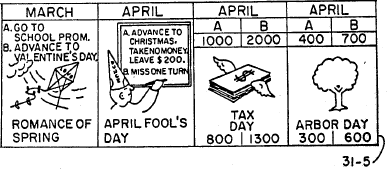 Teva Pharmaceuticals v. Pfizer (Fed. Cir. 2005) (On petition for rehearing).
Teva Pharmaceuticals v. Pfizer (Fed. Cir. 2005) (On petition for rehearing).
In January 2005, the Court of Appeals for the Federal Circuit (CAFC) issued a controversial decision in the case of Teva Pharm. v. Pfizer. Teva, a manufacturer of generic drugs had filed an Abbreviated New Drug Application (ANDA), seeking approval from the FDA to market a generic version of sertraline hydrochloride — a drug sold by Pfizer under the Zoloft® brand. Under the provisions of the Hatch-Waxman Act, Pfizer had 45-days to sue Teva for patent infringement based on Teva’s ANDA filings. However, Pfizer did not sue. Teva then brought a declaratory judgment action against Pfizer, seeking a determination that its generic drug did not infringe Pfizer’s patent.
The question on appeal was whether the Teva’s apprehension of suit was sufficient to create jurisdiction for its declaratory judgment action. On appeal, the CAFC determined that Pfizer’s Orange Book listing along with Teva’s ANDA were insufficient to create an actual controversy
The listing of a patent in the Orange Book by an NDA filer is the result of a statutory requirement. Without more, Pfizer’s compliance with the Hatch-Waxman listing requirement should not be construed as a blanket threat to potential infringers as far as Pfizer’s patent enforcement intentions are concerned. . . . More is required for an actual controversy than the existence of an adversely held patent. . . . We are not prepared to hold that listing a patent in the Orange Book evinces an intent to sue any ANDA filer who submits a paragraph IV certification with respect to the patent.
As such, the CAFC affirmed the District Court’s dismissal of Teva’s action. Now, Teva has requested an en-banc rehearing and amicus curiae briefs were field by the FTC, the Generic Pharmaceutical Association, Ivax Pharmaceuticals and Senators Edward Kennedy, John McCain, and Charles Schumer. However, that request has been denied.
In a precedential order, the CAFC denied Teva’s petition for a rehearing — noting that “a poll was requested, taken, and failed.”
However Judges Dyk and Gajarsa both filed dissenting opinions explaining their reasons for hearing the case.
Gajarsa Dissent: Judge Gajarsa, who was a member of the original Teva panel, argues that the ANDA situation is quite different from other patent infringement situations and requires a separate form of analysis.
The contextual differences between the second ANDA filer and the typical patent infringement case make the reasonable apprehension test inappropriate for this action. By guiding the patentee’s conduct in the typical case, the reasonable apprehension analysis allows the patentee to avoid litigation. Identifying a justiciable controversy in terms of a threat of infringement litigation, the doctrine establishes the circumstances in which the uncertainty of legal rights materially harm a potential infringer in the marketplace. The injury facing Teva in this case is different in kind, but no less actionable.
Gajarsa goes on to say that the panel decision’s Constitutional analysis (Article III limitations) “forestalls legislative correction” of the decision.
Dyk Dissent: Judge Dyke provides a full Article III analysis and concludes that the Teva panel was wrong in determining that a reasonable apprehension or imminent suit was required for declaratory judgment jurisdiction.
There are relatively few Supreme Court cases dealing with Article III and declaratory judgments, but the few cases that do exist provide no support for a reasonable apprehension of imminent suit requirement.
Teva and its cohort of supporters are expected to appeal petition for certiorari.
The Senators’ Brief: Senators Edward Kennedy, John McCain and Charles Schumer filed an amicus brief supporting the petition for rehearing. The brief made the point that there was a Congressional intent surrounding the passage of the Hatch-Waxman Act to expand subject matter jurisdiction over declaratory judgment actions by generic drug companies “to the constitutional limit” and that the panel opinion in Teva v. Pfizer frustrates the purposes of the amendments. (Thanks to Theodore Whitehouse at Willkie Farr for providing a copy of the Senators’ brief)
Links:
 The first Patently-O Patent Prosecution TipCast has just been released. The TipCast series is an audio lecture series that is intended to provide helpful hints and information to patent attorneys and agents. TipCast No. 1 provides a tip relating to revival of abandoned applications.
The first Patently-O Patent Prosecution TipCast has just been released. The TipCast series is an audio lecture series that is intended to provide helpful hints and information to patent attorneys and agents. TipCast No. 1 provides a tip relating to revival of abandoned applications. 
 federal courts that have offended IPO members by denying or refusing to enforce patents. Money saved by cutting these unnecessary government jobs can be used to create a federal program to subsidize businesses known at “patent trolls,” in order to increase patent licensing income and strengthen the U.S. economy. (IPO April 1 Special Report).
federal courts that have offended IPO members by denying or refusing to enforce patents. Money saved by cutting these unnecessary government jobs can be used to create a federal program to subsidize businesses known at “patent trolls,” in order to increase patent licensing income and strengthen the U.S. economy. (IPO April 1 Special Report).